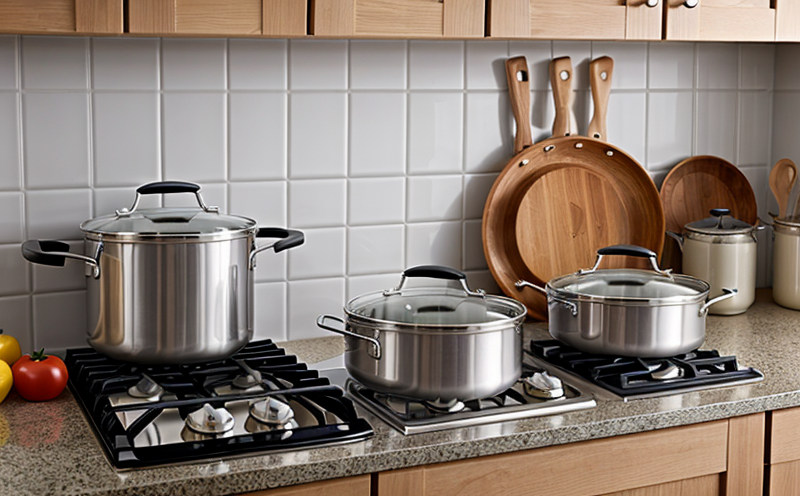Kitchenware & Cookware Testing
Ensuring that kitchenware and cookware are safe, functional, and meet regulatory standards is crucial in today’s consumer market. The testing of these products encompasses a wide range of parameters including durability, chemical safety, ergonomics, and aesthetic appeal. Our comprehensive testing services cover all aspects critical for the development, manufacturing, and compliance verification of kitchenware and cookware.
The primary focus areas include:
- Material Safety: Ensuring that materials used in the production do not contain harmful substances such as lead or cadmium. This is especially important given the direct contact with food.
- Ergonomics and Usability: Testing for comfort, ease of use, and overall user experience. This involves evaluating grip design, weight distribution, and handling stability during prolonged use.
- Performance and Durability: Assessing how well products perform under various conditions such as high-temperature resistance, pressure resistance, and dishwasher durability.
The testing process starts with a thorough understanding of the product specifications. This includes reviewing design drawings, materials lists, and any other relevant documentation to ensure that our tests are aligned with customer requirements. Once the products have been received for testing, they undergo a series of rigorous procedures aimed at identifying potential hazards or non-compliance issues.
Our laboratory uses advanced equipment such as high-temperature furnaces, pressure vessels, and specialized testing rigs designed specifically for kitchenware and cookware. These tools allow us to simulate real-world conditions that products might encounter during their lifecycle. For instance, we can test how a saucepan handles extreme temperature changes or if the handle remains secure even after multiple uses.
The results of these tests are meticulously documented and compared against industry standards such as ASTM D6102, which deals with cookware safety testing, and IEC 60335-2-89, focusing on kitchen appliances. Compliance with these standards is essential for manufacturers looking to enter international markets or meet local regulatory requirements.
In addition to ensuring compliance, our testing also aims at improving product quality by identifying areas where current designs could be enhanced. For example, we have helped clients redesign certain parts of their products based on feedback from our tests which indicated potential safety risks or usability issues.
Applied Standards
The testing of kitchenware and cookware adheres to a variety of international standards designed specifically for these types of products. These include:
- ASTM D6102: This standard covers the safety requirements for cookware intended for use in residential kitchens.
- IEC 60335-2-89: Focuses on kitchen appliances, including those used in professional settings. It sets out detailed instructions and methods to ensure that these appliances are safe for both users and the environment.
These standards provide a framework within which manufacturers must operate if they wish their products to gain market acceptance and meet regulatory requirements. By adhering strictly to these guidelines, we help our clients produce reliable, high-quality kitchenware that can be trusted by consumers worldwide.
Industry Applications
- Product Development: Early-stage testing helps manufacturers identify potential design flaws or safety concerns before full-scale production begins.
- Quality Assurance: Regular testing ensures that ongoing production processes meet specified quality levels. This is vital for maintaining consistent product performance and reliability over time.
- Compliance Verification: Ensures adherence to all relevant regulations and standards, which is necessary for exporting products internationally or selling them in specific regions with stringent rules about kitchenware safety.
Competitive Advantage and Market Impact
Adopting robust testing practices offers several advantages that can significantly enhance a brand's position within the competitive landscape:
- Enhanced Consumer Trust: Products certified as safe by reputable labs like ours gain consumer confidence, leading to higher sales and better reputation.
- Increased Market Access: Compliance with global standards opens doors to new markets where stringent safety regulations are in place.
- Differentiation from Competitors: By offering superior testing services beyond basic compliance checks, companies can differentiate themselves and command premium pricing.





